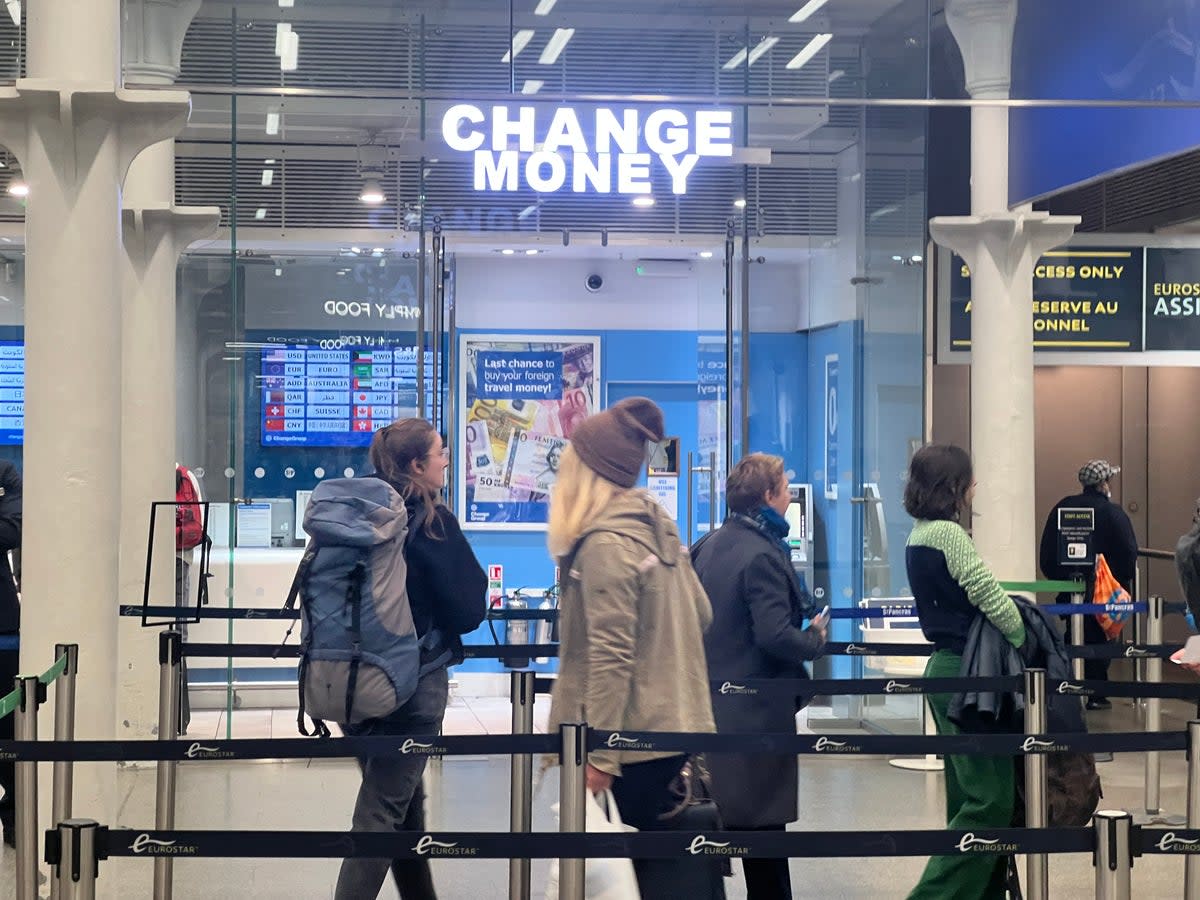Need holiday money? Change sterling after the election for best rates, says personal finance expert

Millions of British holidaymakers with summer travel plans have been urged to hold off changing money until after the election.
Jasmine Birtles, chief executive of the personal finance website MoneyMagpie, told The Independent: “A Labour win with a large majority will imply some stability, making the pound more attractive to investors – at least for a few months.
“Figures are very difficult as there are so many variables, but if I were to pull one out of the air I would say a 3 per cent rise.”
On the night of the EU referendum in 2016, sterling collapsed overnight against all major currencies. Against the euro it dropped from an average of around €1.30 to €1.20 or less.
The current value of £1 is around €1.18, about 10 per cent below the pre-Brexit level.
The top destinations for British holidaymakers – Spain, France and Italy – all use the euro, as do Greece, Portugal and Ireland.
Ms Birtles advised holidaymakers: “If they can, it’s probably worth waiting until after the election, although it’s always a gamble.
“There are still a few weeks to go and we don’t really know what will happen at the election. It’s still all to play for.
“Also, of course, there are other factors to consider that can affect the strength of the pound, including interest rates and productivity levels which could move the dial either way.
“If anyone is unsure, do half and half: change some money now and leave the rest until after the election.”
Kaya Niedenthal, director of international payments for Currency Online Group, said: “There are no certainties that the rates will improve, so your GBP might be worth less after the election, leaving you with less holiday currency for your money.
“In order to mitigate against market volatility, we would recommend breaking down larger amounts by purchasing smaller amounts of currency at strategic points over a period of time, so the exchange rates average out over a longer timeframe.”
The value of the pound slumped to its lowest-ever level against the dollar during the brief tenure of Liz Truss as prime minister, nearing “parity” in which £1 equals $1.
Ten years ago, US-bound holidaymakers could get $1.67 for each pound; today, the rate is $1.27, a drop of almost a quarter.
The one major Mediterranean tourism location that does not use euros is Turkey. Due to some unusual financial policies adopted by President Erdogan, the Turkish lira is constantly devaluing against sterling and other leading currencies.
For the best deal, British travellers should wait until they arrive in Turkey before changing money. Even at the best online rates, the Post Office is offering only 38.2 lira to each £1, compared with a mid-market rate of 41.2.
Travel money: How to get the best exchange rates on your holiday currency and top ways to pay abroad

 Yahoo News
Yahoo News 
